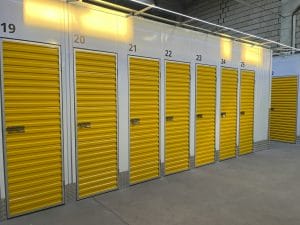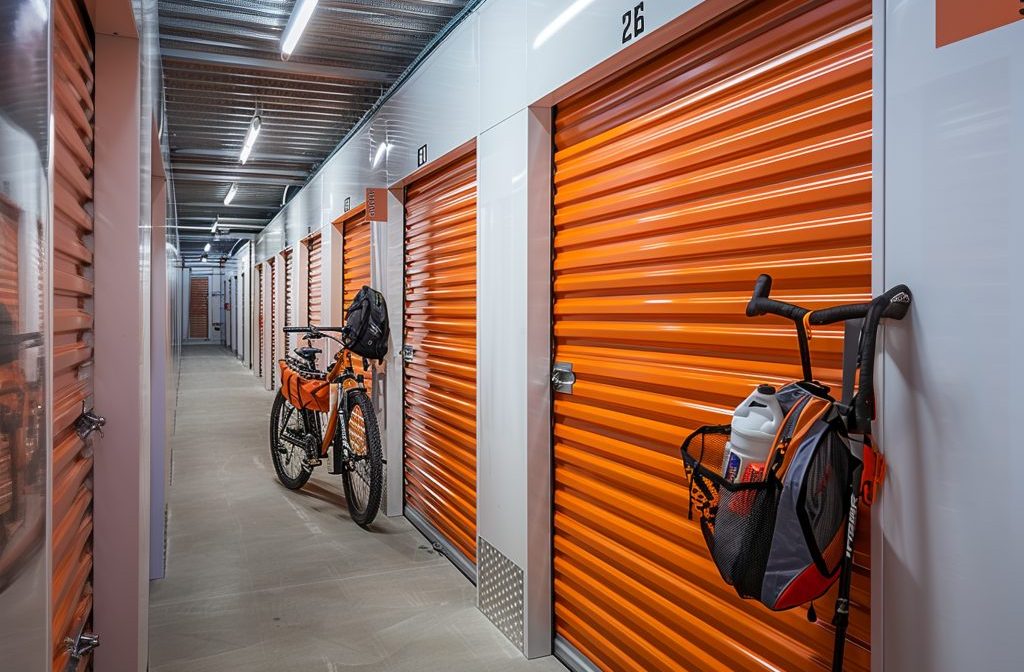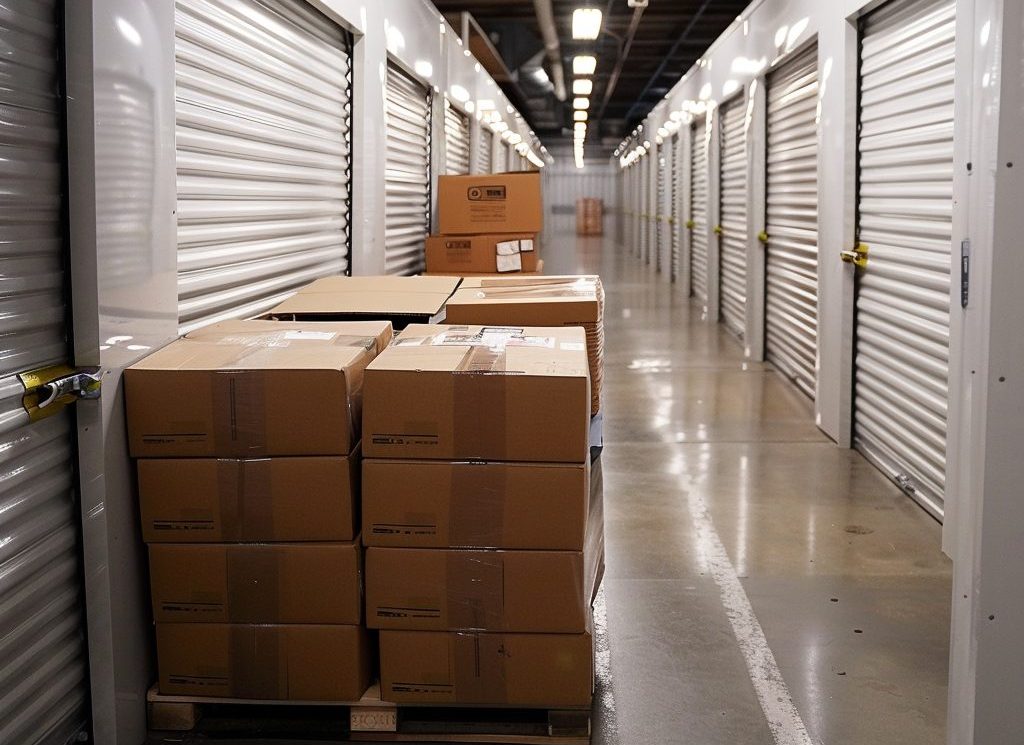When it comes to finding additional storage space, two popular options often come to mind: storage units and shipping containers. Both offer secure storage solutions, but each has its own unique features and benefits. In this blog post, we’ll explore the differences between storage units and shipping containers to help you determine which option is the best choice for your storage needs. By understanding the advantages and considerations of each, you can make an informed decision that suits your requirements. Let’s dive in and compare the pros and cons of storage units and shipping containers.

Storage Units: Versatility and Convenience
When it comes to storage units, versatility, and convenience are key factors to consider.
1.Size and Flexibility: Storage units come in a variety of sizes, allowing you to choose the one that best fits your needs. Whether you require a small unit for personal items or a larger one for business inventory, there is a size to accommodate your belongings. Additionally, storage unit facilities often offer the flexibility to upgrade or downsize your unit as your storage needs change.
2.Accessibility: Storage units are typically located in easily accessible areas, making it convenient for you to visit and retrieve your items. With drive-up access and well-maintained facilities, you can easily load and unload your belongings without hassle. Some storage facilities even offer extended hours or 24/7 access, allowing you to retrieve your items whenever you need them.
3.Additional Amenities and Services: Many storage unit facilities offer additional amenities to enhance your storage experience. These may include climate control, security features like surveillance cameras and gated access, on-site management, and even packing and moving supplies available for purchase. Such amenities and services can provide added peace of mind and convenience when storing your belongings.

Shipping Containers: Durability and Portability
Shipping containers offer a different set of advantages, particularly in terms of durability and portability.
1.Durability: Shipping containers are designed to withstand harsh weather conditions and transport heavy cargo. Made of steel, they are highly durable and resistant to damage from elements such as rain, wind, and pests. This durability ensures that your items remain protected even in challenging environments.
2.Secure and Lockable: Shipping containers are built with security in mind. They are equipped with sturdy doors and locks, offering a high level of protection for your stored items. If security is a top priority for your storage needs, shipping containers provide a robust solution.
3.Portability: One of the key advantages of shipping containers is their portability. These containers can be easily transported and relocated to different sites or even across long distances. If you anticipate the need to move your storage unit in the future, such as during a relocation or construction project, a shipping container offers the convenience of being able to transport your belongings with ease.
Storage Unit vs. Shipping Container:
Size and Capacity
Storage units and shipping containers come in various sizes. Storage units are measured in square footage and offer options like 5′ x 5′, 10′ x 10′, and 10′ x 20′, while shipping containers are measured in TEUs (twenty-foot equivalent units) and typically include 20-foot and 40-foot containers, along with high cube variations. It’s important to consider the available space and capacity when comparing the two options.
Accessibility and Convenience
Storage units are often located within secure facilities, and tenants are provided with access codes or keys. Access to storage units is typically available during designated hours. On the other hand, shipping containers, when used for storage, can be placed on your property or at a specific location of your choice, offering immediate access to your belongings without the need to travel to a separate storage facility.
Security and Durability
Both storage units and shipping containers offer security and durability. Storage facilities implement security measures such as surveillance cameras, gated access, individual unit locks, security personnel, and alarm systems. Shipping containers are inherently secure due to their sturdy construction and lockable doors. Additionally, extra security features like lockboxes and padlocks can be added. Both options are built to withstand different weather conditions, with storage units constructed for longevity and shipping containers made from durable steel.
Cost Considerations
The cost of renting a storage unit varies based on factors like location, size, and facility amenities. Prices can range from a few tens to hundreds of dollars per month. Shipping container pricing depends on factors such as size, condition, and customization options. Purchasing a shipping container outright is often more cost-effective in the long run compared to ongoing rental fees for a storage unit. Additional costs to consider include insurance coverage, administrative fees, transportation costs, delivery fees, and permits.
Customisation and Flexibility
Storage units and shipping containers both offer customisation options. Storage units can be equipped with shelves, hooks, racks, and other organisational features to maximise space and efficiently store items. Shipping containers can be modified with windows, doors, partitions, insulation, electrical wiring, or shelving, allowing for tailored storage solutions. Both options provide flexibility in usage, with storage units accommodating short-term or long-term storage and shipping containers serving as temporary storage or repurposed structures.
Location and Portability
Storage units are typically located within designated facilities, and their proximity to your home or business may impact convenience and accessibility. Shipping containers are designed for easy transportation and can be delivered to your desired location. They offer portability and flexibility, making them suitable for various locations, including remote or temporary sites, construction projects, or areas with limited access to storage facilities.
Use Cases and Applications
Storage units find applications in scenarios such as household storage during moves or renovations, business inventory storage, document and file storage for offices, and vehicle storage. Shipping containers have diverse applications beyond storage, including temporary on-site storage for construction projects, mobile offices or workshops, pop-up shops or kiosks, housing or accommodation units, and modular building blocks for creative structures. Different industries benefit from each option based on their specific needs.
Environmental Impact
Both storage units and shipping containers offer sustainability and recycling opportunities. Storage facilities are implementing eco-friendly practices, while shipping containers are repurposed from retired containers that would otherwise be discarded. Recycling and repurposing options exist for both options, contributing to a more sustainable approach to storage solutions.
Pros and Cons
Storage units offer wide availability, managed facilities with security measures, different size options, climate-controlled units, and customisation. However, they require travel to the facility, incur monthly rental fees, and may have limited accessibility. Shipping containers provide direct on-site access, flexibility, durability, cost-effectiveness, and repurposing potential. However, challenges with local regulations or permits, limited size options, and initial investment for purchasing are factors to consider.
Conclusion
Storage units and shipping containers both offer secure and reliable storage solutions. Understanding their differences in terms of size, accessibility, security, cost, customisation, portability, use cases, and environmental impact can help you make an informed decision. Whether you choose a storage unit or a shipping container, both options provide valuable storage space based on your specific needs and preferences.
Are you in need of a storage unit? Look no further than Squab Storage! We are dedicated to fulfilling all your storage requirements. Whether you’re downsizing, relocating, or simply seeking extra space, our state-of-the-art storage facilities are designed to cater to your needs.
We offer a wide range of unit sizes, ensuring that you find the perfect fit for your belongings. Rest assured that our secure and well-maintained units provide utmost safety and protection for your items. Reach out to us today to receive a quote and reserve your storage unit. Trust Squab Storage to be your reliable partner in safeguarding and organizing your belongings.
FAQs (Frequently Asked Questions)
1. Can I use a shipping container as a permanent storage solution?
Yes, shipping containers can serve as a permanent storage solution. Their durable construction and secure features make them suitable for long-term storage needs.
2. Are storage units climate-controlled?
Some storage units offer climate control options, especially for sensitive items like electronics, antiques, or documents. However, not all storage units have climate control, so it’s important to inquire with the facility about this feature.
3. Can I customize a shipping container for specific storage requirements?
Yes, shipping containers are highly customizable. You can add features like doors, windows, insulation, or electrical wiring to tailor the container to your specific storage needs.
4. Are shipping containers more cost-effective than storage units in the long run?
Purchasing a shipping container outright can be more cost-effective in the long run compared to monthly rental fees for a storage unit. However, this depends on the duration and frequency of storage usage.
5. Can I use a storage unit for business inventory storage?
Yes, storage units are commonly used for business inventory storage. They provide a secure and convenient space to store inventory items, allowing businesses to free up space in their premises.





